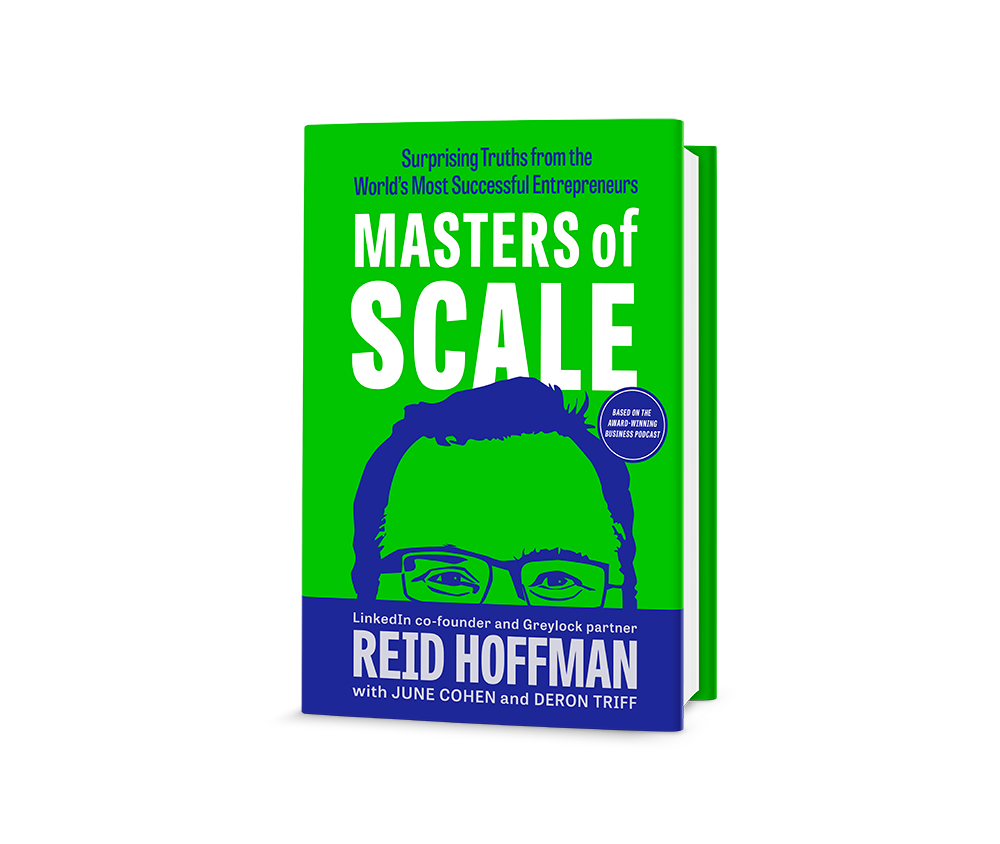When you’re in the mood for a pep talk, who better to turn to than a well-networked, optimistic mentor who is naturally in your corner? That friendly shoulder is the role that “Masters of Scale” wants to play.
Inspired by LinkedIn co-founder and Greylock partner Reid Hoffman’s hit podcast, the new book, co-authored by Hoffman along with podcast executive producers June Cohen and Deron Triff, came out this week. Riddled with anecdotes and actionable takeaways, the book’s strength is wholly related to the sheer diversity of entrepreneurs that are represented in the text. Beyond sticking to tech leaders, the book draws lessons from Spanx founder Sara Blakely, Starbucks founder Howard Schultz and Union Square Hospitality Group CEO Daniel Meyer. Like any good mentor, the book is realistic. Mentors know you aren’t Bumble’s Whitney Wolfe Herd or Airbnb’s Brian Chesky yet, but can extract universally applicable lessons from those leaders so that you can relate to them.
While press wasn’t a main character in the book, “Master of Scale” has already changed my perspective on how I interview founders. Lessons from Tristan Walker made me want to ask more questions about founders, and their most controversial beliefs, rather than how they plan to spend their new round of funding. A note from Andrés Ruzo made me realize that a startup that makes too much sense might be a comfortable read, but it might not be a moonshot that disrupts the world; in other words, pursue the startups that have too much seemingly foolish ambition — because they may be where the best strides, and stories, are made. Finally, it confirmed my belief that the best litmus test for a founder is if they are willing to talk about the hardships ahead of them in an honest, humble way.
Through every feel-good story, I waited for the pandemic to be addressed. The pandemic’s impact on startup advice was largely isolated to a single chapter about the art of the pivot. Instead of interspersing advice on how to deal with the pandemic’s impact on venture capital, funding and markets more broadly, the book limited its references to the cataclysmic event. This choice keeps the advice smartly evergreen. That said, I felt like the book’s choice to not talk much about the ugly within startupland creates an imbalance of sorts. It would have benefitted from talking directly about divisive dynamics, ranging from how WeWork’s Adam Neumann impacted the way we talk about visionary founders, Brian Armstrong’s Coinbase memo and what it means for startup culture, or even the role of the tech press today. One could argue that the book never claims to be journalistic, and instead wanted to play the role of a cheerleading mentor, not a cynical one.
Writing a book based on a hit podcast isn’t necessarily a walk in the park. Audio is an entirely different medium from written text, and it takes a certain finesse to translate into text the charisma and humility of vocal banter. Hoffman and the authors thus certainly shine brighter in some stories than others, leaning heavily on a repeated, yet effective storytelling arc throughout the text: introduce problem, present aha moment, offer solutions and share universal lessons.
I read the book over a weekend; I recommend the same move for any aspiring entrepreneur, techie or startup journalist looking to pick up a copy. Reid and the coauthors will do a fantastic job connecting the dots of over 70 entrepreneurs for you, but the real magic will come from what happens when you pause in between the stories — either to Google a founder you resonate with, to change up your interview style or to finally start working on the idea you one day may just blitzscale.

from TechCrunch https://ift.tt/3nbLtUh
ConversionConversion EmoticonEmoticon